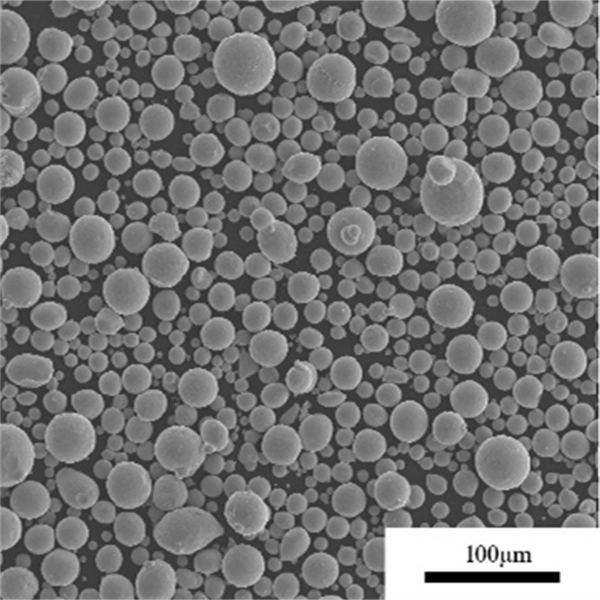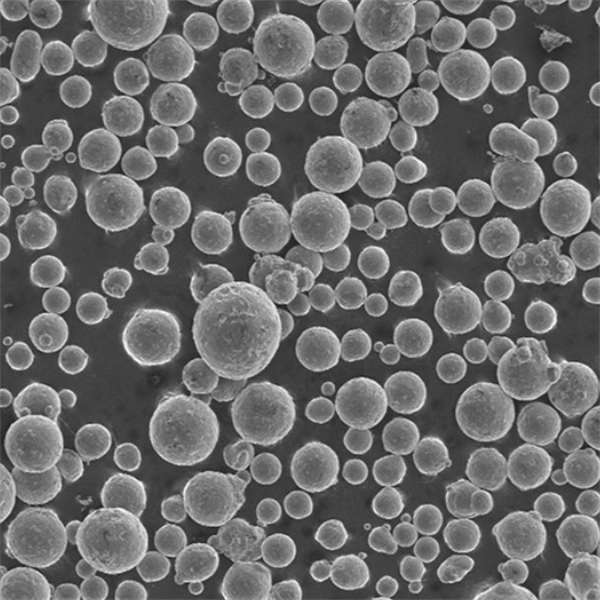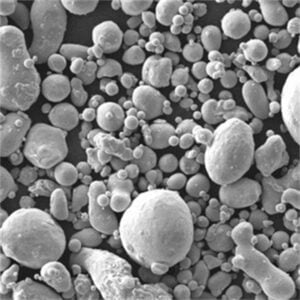When we think about advanced materials in engineering and manufacturing, spheroidization powder may not be the first thing that comes to mind. Yet, it plays a crucial role in various high-tech applications. Let’s dive into this topic, exploring everything from its definition to specific models, applications, and much more.
Overview of Spheroidization Powder
Spheroidization powder refers to metal powders that have been processed to form spherical particles. This process enhances their flowability, packing density, and overall performance in various applications, from 3D printing to thermal spray coatings. The spherical shape reduces surface area and friction between particles, making them ideal for precision manufacturing.
Types, Composition, Properties, and Characteristics of Spheroidization Powder
Types and Composition
| Metal Powder Model | Composition | Properties | Characteristics |
|---|---|---|---|
| Aluminum 6061 | Al, Mg, Si | High strength, lightweight | Excellent corrosion resistance, weldability |
| Titanium Ti-6Al-4V | Ti, Al, V | High strength-to-weight ratio | Biocompatible, high corrosion resistance |
| Stainless Steel 316L | Fe, Cr, Ni, Mo | High corrosion resistance, durability | Non-magnetic, good weldability |
| Inconel 718 | Ni, Cr, Fe, Nb, Mo | High strength at elevated temperatures | Excellent oxidation and corrosion resistance |
| Copper C18150 | Cu, Cr, Zr | High thermal and electrical conductivity | Good hardness, wear resistance |
| Nickel 625 | Ni, Cr, Mo, Nb | High corrosion and oxidation resistance | Good weldability, fatigue resistance |
| Cobalt-Chrome | Co, Cr, Mo | High wear and corrosion resistance | Biocompatible, excellent mechanical properties |
| Maraging Steel | Fe, Ni, Co, Mo | Ultra-high strength, toughness | Good machinability, age-hardenable |
| Tungsten Carbide | WC, Co | Extremely hard, wear-resistant | High thermal conductivity, low thermal expansion |
| Aluminum A380 | Al, Si, Cu | Good machinability, lightweight | Excellent corrosion resistance, dimensional stability |

Properties and Characteristics
| Property | Description |
|---|---|
| Flowability | Enhanced due to spherical shape, leading to better handling |
| Packing Density | Higher, resulting in stronger, more uniform final products |
| Oxidation Resistance | Improved due to reduced surface area |
| Thermal Conductivity | Varies by material, important for heat dissipation |
| Electrical Conductivity | Significant for applications in electronics and power |
| Biocompatibility | Essential for medical implants (e.g., Titanium, Cobalt-Chrome) |
Applications of Spheroidization Powder
| Application | Description |
|---|---|
| 3D Printing (Additive Manufacturing) | Produces precise, intricate designs with less waste |
| Thermal Spray Coatings | Enhances surface properties like wear and corrosion resistance |
| Metal Injection Molding | Creates complex shapes with high precision |
| Powder Metallurgy | Forms high-strength, uniform parts through sintering |
| Biomedical Implants | Utilized in orthopedics and dental applications |
| Aerospace Components | Fabricates lightweight, high-strength parts |
| Automotive Parts | Used for manufacturing components requiring high durability |
| Electrical and Electronics | Essential for conductive pathways and heat sinks |
| Oil and Gas Industry | Provides wear-resistant parts for harsh environments |
| Jewelry Making | Enables the creation of intricate designs with precious metals |
Specifications, Sizes, Grades, and Standards
Specifications and Sizes
| Model | Particle Size (µm) | Density (g/cm³) | Purity (%) |
|---|---|---|---|
| Aluminum 6061 | 10-45 | 2.7 | 99.8 |
| Titanium Ti-6Al-4V | 15-53 | 4.43 | 99.5 |
| Stainless Steel 316L | 20-60 | 7.9 | 99.9 |
| Inconel 718 | 15-50 | 8.19 | 99.9 |
| Copper C18150 | 10-45 | 8.96 | 99.7 |
| Nickel 625 | 15-53 | 8.44 | 99.9 |
| Cobalt-Chrome | 20-60 | 8.3 | 99.8 |
| Maraging Steel | 15-50 | 8.0 | 99.9 |
| Tungsten Carbide | 10-45 | 15.6 | 99.5 |
| Aluminum A380 | 10-50 | 2.7 | 99.8 |
Grades and Standards
| Metal Powder Model | Grade | Standard |
|---|---|---|
| Aluminum 6061 | T6 | ASTM B928/B928M-15 |
| Titanium Ti-6Al-4V | Grade 5 | ASTM F1472 |
| Stainless Steel 316L | 316L | ASTM A240/A240M |
| Inconel 718 | 718 | AMS 5662 |
| Copper C18150 | C18150 | ASTM B601 |
| Nickel 625 | 625 | ASTM B446 |
| Cobalt-Chrome | F75 | ASTM F1537 |
| Maraging Steel | 250 | ASTM A538 |
| Tungsten Carbide | WC-Co | ASTM B777 |
| Aluminum A380 | A380 | ASTM B85/B85M |
Suppliers and Pricing Details
| Supplier | Location | Metal Powders Available | Price (per kg) |
|---|---|---|---|
| Sandvik Osprey | United Kingdom | Stainless Steel, Inconel | $50 – $100 |
| GKN Hoeganaes | USA | Aluminum, Titanium | $30 – $80 |
| Höganäs AB | Sweden | Copper, Maraging Steel | $40 – $90 |
| LPW Technology | United Kingdom | Nickel, Cobalt-Chrome | $70 – $120 |
| Carpenter Technology | USA | Tungsten Carbide, Inconel | $80 – $150 |
| AP&C (GE Additive) | Canada | Titanium, Aluminum | $60 – $110 |
| HC Starck | Germany | Copper, Stainless Steel | $50 – $90 |
| Praxair Surface Technologies | USA | Nickel, Maraging Steel | $70 – $130 |
| Makin Metal Powders | United Kingdom | Aluminum, Copper | $35 – $75 |
| Metal Powder and Process Ltd | USA | Cobalt-Chrome, Inconel | $65 – $120 |
Comparing Pros and Cons, Advantages and Limitations
| Pros | Cons |
|---|---|
| Enhanced Flowability | Higher production cost |
| Improved Packing Density | Requires advanced equipment for production |
| Better Oxidation Resistance | Limited to high-value applications |
| Uniformity in Final Products | Sensitivity to moisture |
| Higher Performance in Additive Manufacturing | May require specialized storage conditions |
Advantages and Disadvantages of Different Metal Powders
| Metal Powder Model | Advantages | Disadvantages |
|---|---|---|
| Aluminum 6061 | Lightweight, strong, corrosion-resistant | Lower strength compared to some alloys |
| Titanium Ti-6Al-4V | High strength-to-weight ratio, biocompatible | Expensive, difficult to machine |
| Stainless Steel 316L | High corrosion resistance, durable | Heavier, less conductive |
| Inconel 718 | High temperature resistance, durable | Very expensive, hard to machine |
| Copper C18150 | Excellent conductivity, hardness | Prone to oxidation |
| Nickel 625 | Good weldability, fatigue resistance | Expensive |
| Cobalt-Chrome | High wear resistance, biocompatible | Expensive, hard to machine |
| Maraging Steel | Ultra-high strength, good machinability | Expensive, limited availability |
| Tungsten Carbide | Extremely hard, wear-resistant | Very heavy, difficult to process |
| Aluminum A380 | Good machinability, lightweight | Lower strength compared to other alloys |
Applications of Spheroidization Powder: Specific Insights
When it comes to additive manufacturing or 3D printing, spheroidization powder plays a pivotal role. The spherical particles ensure a smooth flow through the printer nozzle, resulting in high-precision components. For instance, Titanium Ti-6Al-4V powder is widely used in the aerospace industry for manufacturing lightweight, high-strength parts.
In the automotive industry, Aluminum 6061 powder is often chosen for its excellent strength-to-weight ratio, making it perfect for parts like engine components and structural elements.
Key Insights into Thermal Spray Coatings
Thermal spray coatings benefit significantly from spheroidization powder. For example, Inconel 718 powder provides exceptional oxidation and corrosion resistance, making it ideal for coating turbine blades and other high-temperature components in power generation and aerospace sectors.
Metal Injection Molding (MIM) and Powder Metallurgy
In MIM, spheroidization powder ensures high precision and uniformity in complex shapes. Stainless Steel 316L is a popular choice here due to its durability and corrosion resistance, making it suitable for producing medical devices and surgical instruments.
Powder metallurgy relies on the high packing density and flowability of spheroidization powder. Maraging Steel powder, with its ultra-high strength and toughness, is often used in manufacturing high-stress components like gears and bearings.
Suppliers: Who to Trust for Quality Powders
Choosing the right supplier is crucial. Renowned names like Sandvik Osprey, GKN Hoeganaes, and AP&C (GE Additive) are trusted for their high-quality spheroidization powders. These suppliers offer a range of powders, ensuring you get the right material for your specific application.
Pricing Insights: What to Expect
The cost of spheroidization powder varies based on composition, purity, and supplier. Generally, prices range from $30 to $150 per kilogram. For instance, Aluminum 6061 powder may cost around $30-$80 per kg, while more specialized powders like Tungsten Carbide can be as high as $150 per kg.

FAQs
| Question | Answer |
|---|---|
| What is spheroidization powder used for? | It is used in additive manufacturing, thermal coatings, powder metallurgy, etc. |
| Why is spherical shape important? | It enhances flowability, packing density, and reduces oxidation. |
| How is spheroidization powder made? | Through processes like gas atomization or plasma rotating electrode process. |
| What are the advantages of using it in 3D printing? | It ensures precision, uniformity, and better mechanical properties. |
| Can spheroidization powder be recycled? | Yes, but the quality may degrade, affecting performance. |
| Which industries benefit most from it? | Aerospace, automotive, medical, and electronics. |
| How to store spheroidization powder? | In a dry, cool environment to prevent oxidation and contamination. |
| What are the common standards for these powders? | ASTM, AMS, and other industry-specific standards. |
Conclusion
Spheroidization powder represents a significant advancement in materials engineering. Its unique properties and wide-ranging applications make it indispensable in modern manufacturing processes. Whether you’re in aerospace, automotive, or biomedical fields, understanding and utilizing spheroidization powder can significantly enhance the performance and quality of your products. As technology advances, we can expect even more innovative uses and improvements in this fascinating material.


















